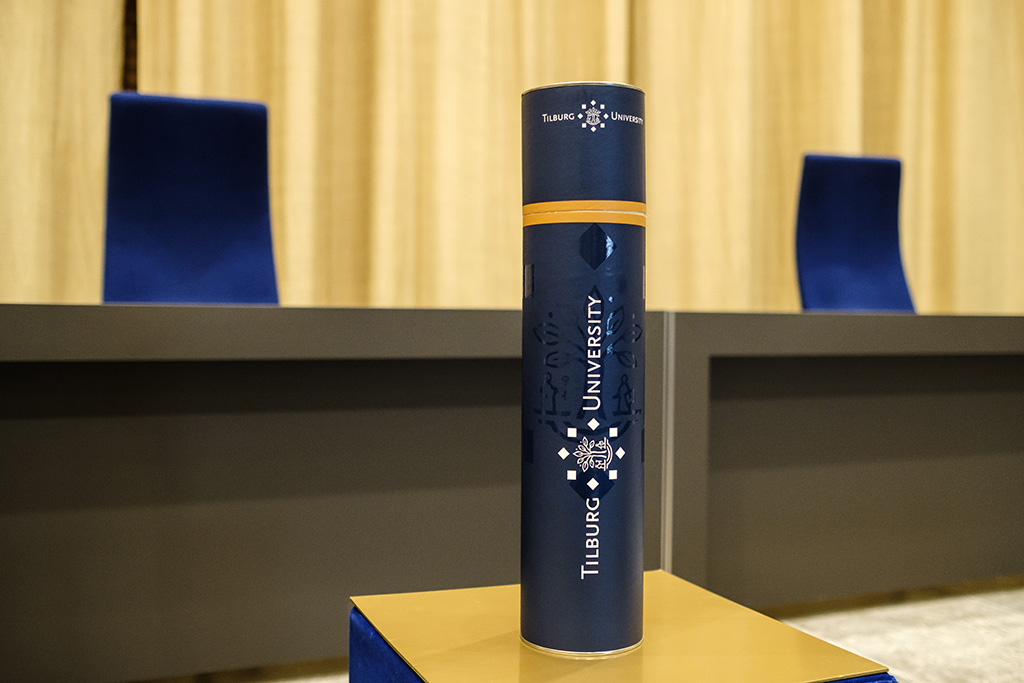Tilburg’s Right to Supervise PhD Students Expanded: Who Can Now Serve as Supervisors?
The right to supervise PhD candidates at Tilburg University has been expanded. Alongside full professors, associate professors can now act as primary supervisors for PhD candidates. And assistant professors? They still don’t make the cut. ‘Rank shouldn’t matter.’

Isn’t a PhD supervisor supposed to be a full professor? Traditionally, yes. Until a law change in 2017, only full professors had the right to act as the primary supervisor in a PhD program. This was the case even if, in reality, an associate or assistant professor was the one providing the intensive guidance for a junior researcher.
Since amendments to the Higher Education and Scientific Research Act (Wet op het hoger onderwijs en wetenschappelijk onderzoek), anyone with a doctoral degree can oversee a PhD process from start to finish. However, in practice, not much changed initially. In Tilburg, associate professors were only occasionally granted the right to supervise PhDs on a case-by-case basis after the law changed.
Supervision Rights for Nearly 40 Associate Professors
The initial hesitation has since subsided. A total of 39 associate professors have been granted the ius promovendi ‘in principle for an indefinite period of time’ by Tilburg’s Doctorate Board (CvP) between June 2023 and September 2024, according to the committee. These associate professors no longer need to serve as co-supervisors under a full professor but can instead take on full responsibility themselves.
This development is seen as a significant step forward at Tilburg Young Academy (TYA). ‘The group of PhD supervisors is becoming more diverse, and the workload is better distributed, allowing people to be more engaged with their PhD candidates,’ says Caspar van Lissa, associate professor of social data science and board member of TYA.
Expanding the Right to Supervise
The group of young Tilburg scientists called on the university to expand supervision rights back in 2022. Now, they are encouraging associate professors to apply for the right to supervise. They also want to help assistant professors ‘who think they qualify’ submit requests.
TYA believes that anyone qualified should be eligible for the right to supervise PhD students. According to the group, eligibility should be based not on rank but on competency, with supervisory training and evaluations used to ensure quality. ‘Rank is no guarantee of effective leadership,’ says Van Lissa.
Staff Party The Independents shares this view, according to Katya Ivanova, assistant professor of sociology and chair of the party. The party raised TYA’s proposal to expand the supervision right in the university council, pushing the discussion further. ‘Rank shouldn’t matter,’ says Ivanova.
Supervising PhD Candidates
The Doctorate Board also recognizes that academic rank does not determine someone’s suitability as a supervisor. Still, rank plays a key role in policy, as revealed in a letter to the university council: ‘The Doctorate Board has made the choice to generally award the ius promovendi only to associate professors.’ Because ‘an associate professor is more likely to meet the substantive criteria’ than assistant professors.
These criteria are significant. The board believes a supervisor should have sufficient experience in mentoring PhD candidates. An informal guideline requires that at least one candidate must have previously completed their PhD successfully under the person’s guidance. ‘This ensures that someone has gone through all phases of the PhD process as a co-supervisor,’ explains Renata van Leeuwaarde-Martens, Head of Legal Affairs and Secretary of the CvP.
Sufficient Research Experience
Many associate professors, and even some assistant professors, meet this requirement. However, there is an additional requirement: ‘One must have sufficient relevant research experience. This is a broader requirement,’ says Van Leeuwaarde-Martens. An assistant professor who is relatively new to research or primarily focused on teaching has little chance of meeting this standard, she acknowledges.
Procedurally, it also seems unlikely for an assistant professor to receive the right to supervise PhD students. Such cases require invoking the exception clause of the PhD regulation, which applies only in ‘extraordinary cases.’
When would someone qualify as extraordinary enough? That may soon be clarified: the first and only request from an assistant professor is currently under review. ‘The CvP must have enough confidence in someone’s ability to take full responsibility for a PhD program,’ says Van Leeuwaarde-Martens. This is crucial, considering that the work involves supporting junior and often vulnerable researchers.
More Transparency
The right to supervise has been expanded, benefiting associate professors. This may be seen as progress, but The Independents regret that the right is still tied to rank. The initial aim was a right to supervise for both associate and assistant professors, ‘to decouple academic rank from this right,’ says Ivanova, as they do at Eindhoven University of Technology.
Furthermore, some questions remain. When exactly does someone have sufficient research experience? This can vary by field. The Independents call for greater transparency in the evaluation process. Also important, according to Ivanova: ‘What does it mean that someone receives the right to supervise ‘in principle’?’
This, according to Van Leeuwaarde-Martens, means that the university can revoke the right to supervise if an associate or assistant professor proves unfit as a supervisor. No such revocation option applies to full professors.
Since scientists only receive the right to supervise after rigorous assessment, the the Doctorate Board believes the likelihood of revocation is low. ‘This would only occur in serious cases,’ says the Secretary, and it would be preceded by a ‘monitoring and adjustment’ process. But, however small the chance, an associate or assistant professor might perceive it as a lack of trust. Rank doesn’t matter—or maybe it does, a little bit.






